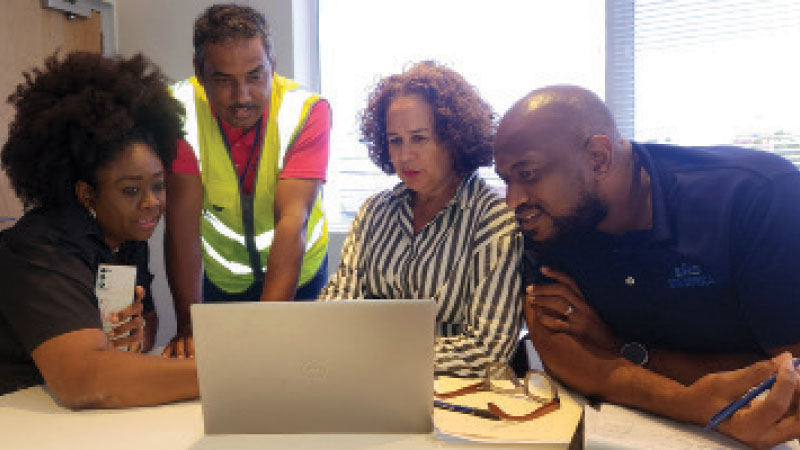Thoughts of a Caribbean female CEO
“The impact of the COVID-19 pandemic has taught many lessons, among them is the importance of collaboration and communication. For instance, the use of collaborative workspaces as well as communication applications are being increasingly utilised to facilitate effective teamwork from “The impact of the COVID-19 pandemic has taught many lessons, among them is the importance of collaboration and communication.
For instance, the use of collaborative workspaces as well as communication applications are being increasingly utilised to facilitate effective teamwork from different locations.” Erica Luke, Managing Director of Eric Hassell Shipping in Barbados, a family business that had its genesis more than 50 years ago, has learned many lessons about business in a changing world. And having led the Company through the challenges of the recent global pandemic she reflected on the impact and lessons for businesses in todays shipping industry.“In addressing the challenges and far-reaching impacts left behind by Covid-19, it is so important for all shore-based shipping entities to stay competitive,” the recently elected President of the Shipping Association of Barbados opined.
Staying competitive
“I simply cannot emphasise enough the importance of adopting new technologies be it tools for logistics planning, route optimisation or for cargo tracking in order to stay competitive and efficient. Staying competitive in this time also requires investment in continuous training and development of employees. This is critical to ensuring that work teams are properly equipped with the skills and knowledge necessary to effectively use the new technologies now available,” she said.
“Fostering an organisational culture of continuous learning helps companies to remain innovative and resilient. Encouraging employees to identify areas for development and then providing the resources and support systems necessary to make those improvements happen is a key component in building such a culture within the organisation.
“The impacts of the COVID-19 pandemic have taught many lessons, among them is the importance of collaboration and communication. For instance, the use of collaborative workspaces and communication applications are being increasingly utilised to facilitate effective teamwork from different locations,” she said.
Portside communities
Ports are corporate citizens of the communities in which they operate. Erica Luke views enlightened corporate citizenship as one of the responsibilities of companies in the port sector.
“In the process of development, many ports are expanding facilities to accommodate larger cruise vessels and cargo ships. Some of this expansion, if not properly managed, can present health risks, as unfortunately, ports generate significant air, water, and noise pollution. On the other hand, port development can also lead to increased property values and economic growth, which can lead to the displacement of existing communities, particularly low-income or marginalised populations. Therefore, community assistance-based and give-back initiatives should be included in a port’s strategic plan,” she said.
With potential risks like fires, explosions, and accidents, aggressive safety plans should be maintained. These risks, some of which are life-threatening, should not be downplayed or overlooked. Safety should remain a priority in all port environments, as ports can be dangerous places to work or to live nearby, she said.
In addition to these risks to port communities, the SAB President expressed concern about the environmental and social impacts of normal port operations. In this regard she felt that, as good corporate citizens, ports should make it an imperative protect their home communities. There are possible impacts of shipping on fisheries, agriculture but in some situations, local cultures or ways of life could also be impacted.
“Port communities and corporate groups must consider the unique concerns and needs of the immediate surroundings in the planning and development or expansion processes through engagement with stakeholders, local communities, etc., and conduct assessments to ensure that the impacts of port operations are managed in a manner that is sustainable and equitable for all.”

